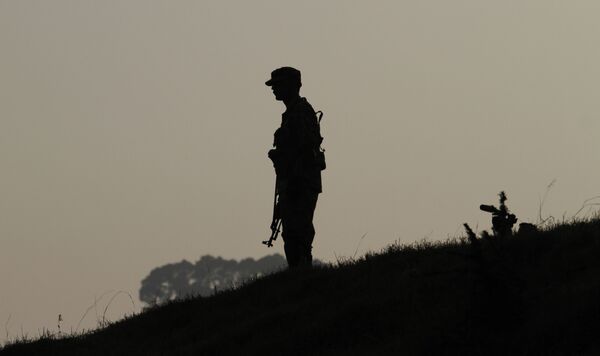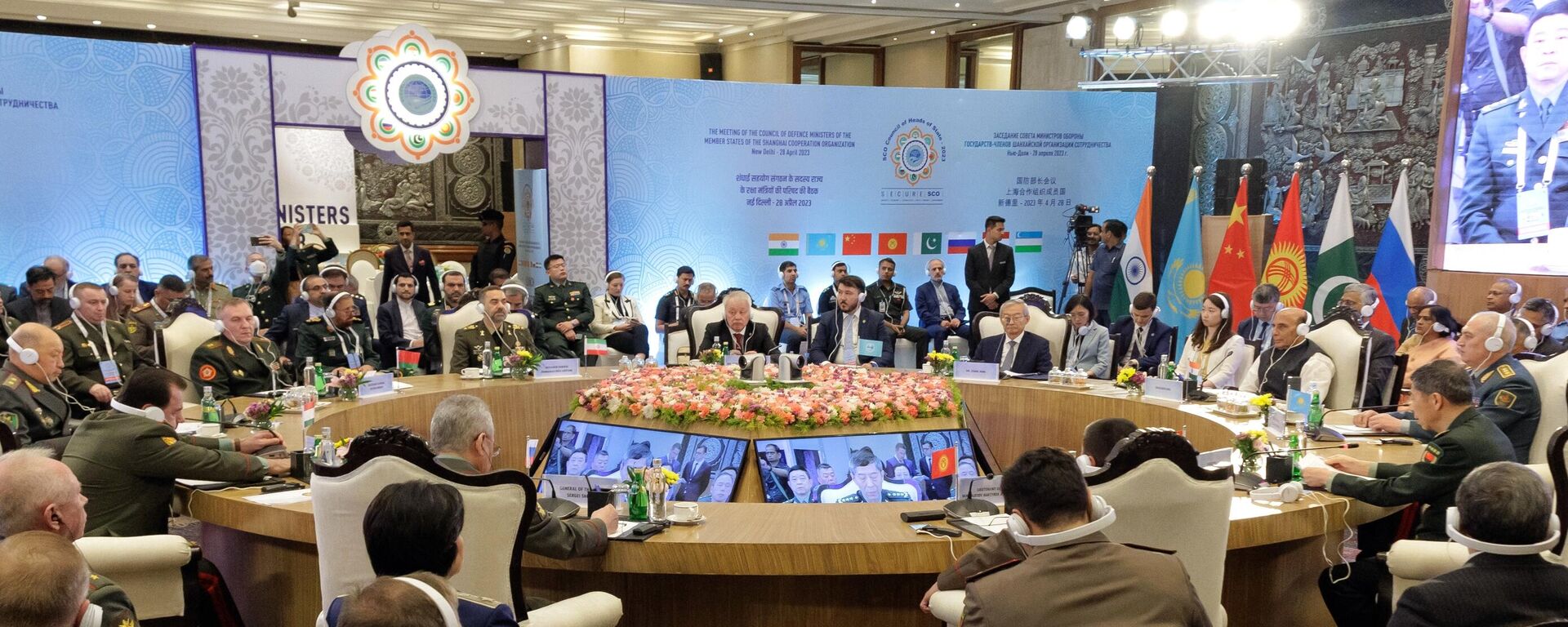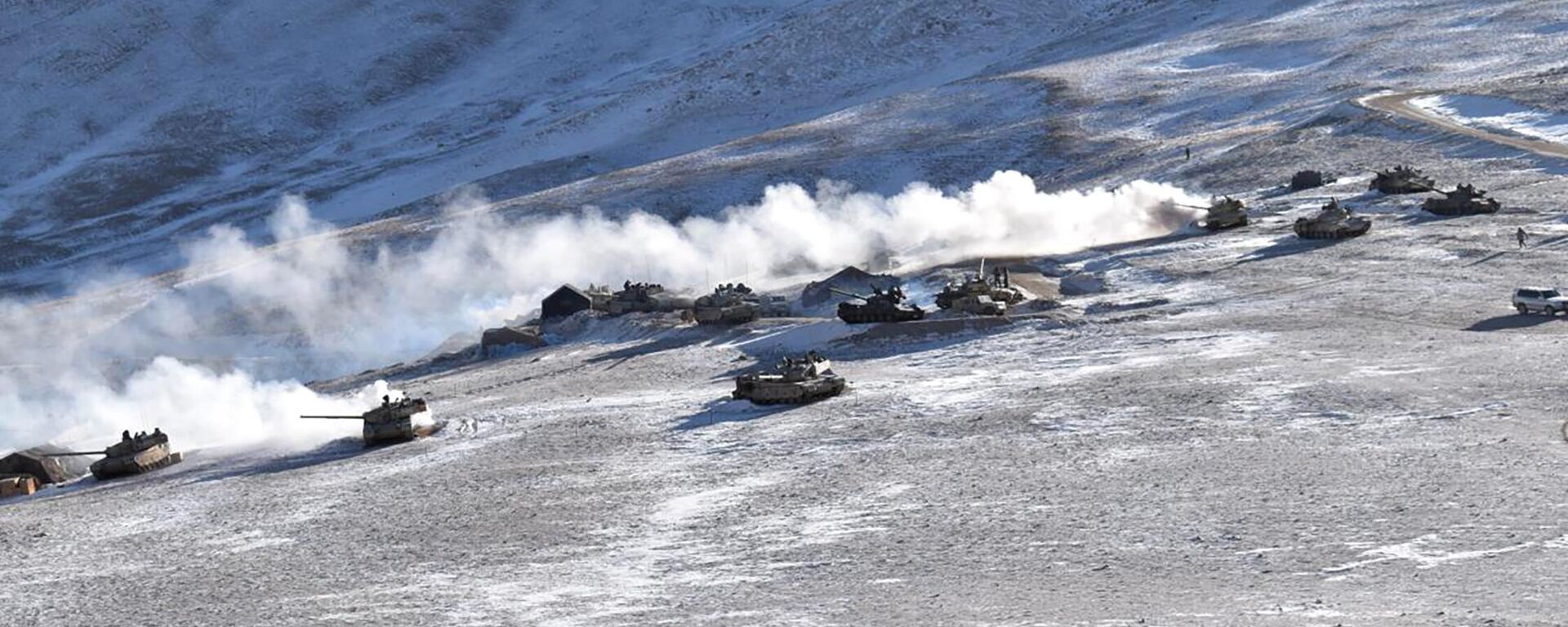
SCO Meeting an ‘Important Step' for Resuming India-Pakistan Engagement, Expert Says
Pakistan Foreign Minister Bilawal Bhutto Zardari, set to attend the SCO meeting in Goa on Friday, said that his participation reflected the “importance” Pakistan attaches to its SCO membership. He is the first Pakistani FM to visit India since 2011.
The Shanghai Cooperation Organisation (SCO) Council of Foreign Ministers (CFM) meeting represents a “small but important step” towards resuming engagement between India and Pakistan, an expert has told Sputnik.
Dr. Anuradha Chenoy, a former Professor at the Centre for Russian and Central Asian Studies at New Delhi-based Jawaharlal Nehru University (JNU), underlined that the meeting is taking place at a time when Islamabad is in the throes of a financial crisis and looking for a bailout from the International Monetary Fund (IMF).
She noted that India, on the other hand, has been experiencing one of the strongest Gross Domestic Product (GDP) growths across the world inspite of the global economic headwinds.
“India demands from Pakistan that they stop any support to terror groups. India has argued that there has been some decline in terrorism in India. In these circumstances the Pakistan foreign minister’s visit would be positive for regional stability,” Chenoy stated.
Ties between New Delhi and Islamabad have been frayed since 2015. Back then, Prime Minister Narendra Modi paid an unexpected visit to Lahore to meet the then Pakistani PM Nawaz Sharif. However, a series of terror attacks in India which New Delhi says were carried out by Pakistan-based militants led to deterioration in relations.
In 2019, New Delhi’s decision to revoke the semi-autonomous status of Jammu and Kashmir led to Islamabad downgrading its commercial and diplomatic ties with its eastern neighbour.
Issue of Terror Sponsorship Persists
Former Indian diplomat Ambassador Gurjit Singh opined that New Delhi won’t begin its bilateral dialogue with Pakistan unless Islamabad “improves its behaviour” in terms of cross-border terrorism.
“Unless they stop supporting terrorism financially and physically, there is no opportunity for India to deal with them, as the Indian government spokesmen have often made it clear on a number of occasions,” Singh remarked.
The former diplomat criticised Pakistan for “interfering” in India’s affairs through terrorism and other means, while putting the onus of its internal problems on New Delhi.
“It always tries to externalise its problems, as if India is their problem. Pakistan's problem is Pakistan. They must learn to deal with their problems and not blame India. Therefore, this is the kind of thing that they keep doing,” said Singh.
He said that Pakistan was in need of international support because of its economic condition and it viewed the SCO as a platform to engage with China, one of Islamabad’s closest economic and defense partners.
“I think it is Pakistan's survival instinct, which is bringing them to this meeting. Pakistan has no new ideas on how to engage India, and India will not engage with them until their record on supporting terrorism grossly improves. So, I have no great hope bilaterally from the visit of the Pakistani foreign minister,” he said.
“But yes, he is welcome to participate in the SCO meeting, of which Pakistan is part,” added Singh.
Positive Dynamics in Sino-India Ties?
Both the experts agreed that the participation of Chinese foreign minister Qin Gang in the SCO CFM represented an “important step” for Sino-India ties, which have been affected by the ongoing border dispute in the eastern Ladakh region.
New Delhi has repeatedly told Beijing, most recently during the SCO defence ministers’ meeting last month, that the overall ties won’t return to normal unless the Ladakh dispute is resolved.
Qin is expected to hold a bilateral meeting with the Indian foreign minister S Jaishankar on the margins of the SCO meeting. The duo also met last month on the sidelines of the G-20 Foreign Ministers Meeting (FMM) in New Delhi.
“I think the SCO is very clear that bilateral issues are not part of its agenda. Therefore, the SCO per se plays no role in any bilateral issues, border or otherwise. But when you have physical meetings, it provides the opportunities for ministers to meet bilaterally on the sidelines. And that is the advantage of having a foreign ministers’ meeting, which is live and not virtual,” Singh stated.
Noting that the border dispute in Ladakh still persisted in spite of multiple rounds of military commander level consultations, Chenoy said that its resolution would be possible only after a consensus emerged at the “highest political level”.
“In these circumstances, where the relations between India and China have been ‘cold’, the coming of Foreign Minister Qi Gang is an important step, where some engagement between the two foreign ministers will take place,” she stated.
Chenoy said that establishing peace and mutual trust between India and China would be helpful not only for regional stability but also for the entire Eurasian region.
Go back to the beginningGo back to the main page


